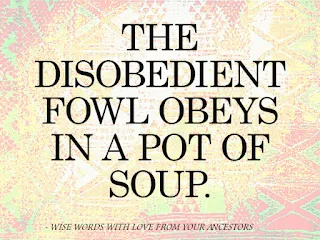Wisdom with love from your ancestors
Don't put the key to happiness in someone else's pocket, wisdom with love African proverbs from your ancestors.
African proverbs are popular short sayings created from ancestral insight handed down from generation to generation. Wise sayings in the language of proverbs have been passed down for generations in African culture.
Simple advice for you: don't put the key to happiness in someone else's pocket.
What does that mean? It means that you should not depend on other people for your happiness. You should not let them control your emotions, your decisions, or your self-worth. You should not give them the power to make you happy or unhappy.
Why? Because people are unpredictable. They can change, they can leave, they can hurt you. And if you rely on them for your happiness, you will be disappointed, betrayed, and miserable. You will be constantly chasing after their approval, their attention, and their love. You will be living for them, not for yourself.
But if you keep the key to happiness in your own pocket, you will be free. You will be able to choose your own path, your own goals, and your own values. You will be able to love yourself, respect yourself, and appreciate yourself. You will be able to enjoy life on your own terms, not on someone else's.
Of course, this doesn't mean that you should isolate yourself from others. It doesn't mean that you should not care about anyone or anything. It doesn't mean that you should not love or be loved. It just means that you should love yourself first. You should be happy with yourself first. You should be the source of your own happiness.
So remember: don't put the key to happiness in someone else's pocket. Keep it in yours. And use it wisely.
African proverbs express the timeless wisdom of African people.
Wisdom with love from your ancestors
Don't put the key to happiness in someone else's pocket.
The frown on the face of the goat will not stop it from being taken to the market.
To wash a donkey's tail is loss of time and soap.
The disobedient fowl obeys in a pot of soup African proverb.
The African proverb means that disobedience will not take you far, it will only teach you a bitter lesson and lead to trouble or a life cut short. Therefore, you must always be humble and respectful of authority. The fowl in the proverb represents a person who is stubborn and rebellious, and who does not listen to advice or warnings. The pot of soup represents the fate that awaits such a person, who will eventually be caught and cooked by those who are stronger or smarter than him. The fowl obeys in the pot of soup because it has no choice but to accept its doom.
The African proverb "The disobedient fowl obeys in a pot of soup" is a powerful and memorable way of teaching us the importance of humility, respect, and wisdom. It reminds us that disobedience can have dire consequences, and that obedience can save us from trouble and harm. It also challenges us to think about the reasons why we obey or disobey, and whether we are doing so out of love or fear.
It is better to obey willingly and voluntarily, out of respect and wisdom, than to obey reluctantly and fearfully, out of punishment and pain. The proverb warns us to avoid being like the disobedient fowl, who only learns his lesson when it is too late.
- Deadliest routes for refugees
- Cooking with shea butter oil
- Worst serial killers recorded in history are women
- Indigenous healers and plants used
- Night running illness or magic
- What is back to Africa











